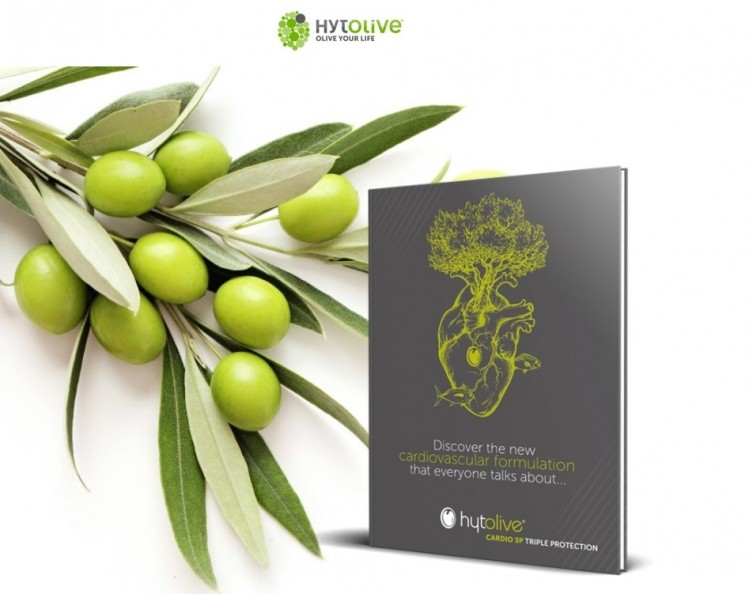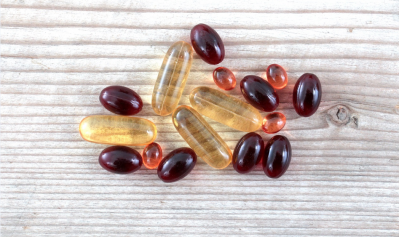Vitafoods 2022: Genosa offers anti-inflammatory hydroxytyrosol extract for omega-3 blends

The extract, known as Hytolive Infinity, is the main phenolic compound of extra virgin olive oil (EVOO) and is considered a potent free radical scavenger.
According to Genosa’s CEO Carlos Peña, the product opens up a number of applications for the omega oils market whatever the source.
“Dietary lipid consumption has an impact on our health,” he explains. “Genosa has made it possible for EVOO health benefits to be incorporated into omega oils.
“We also contribute to the circular economy since we obtain our extracts directly from olives.”
Hytolive Infinity can be blended into marine sources such as fish, krill and algae or land-based omega oils, adds Peña.
“Consumers are thus offered an ideal and complementary combination as the extract not only lowers triglycerides but prevents blood lipids (LDL and vLDL cholesterol) from oxidative damage and hence the control of the atheroma plaques development.”
Europe’s ageing population
Peña told NutraIngredients that Hytolive Infinity's anti-inflammatory properties means there are possibilities for the extract to play a role in brain health, an issue that resonates with Europe’s ageing population.
“Omega-3 is good for inflammation in general,” explains Peña. “But it is also good for the brain as is hydroxytyrosol.
“Why is this? Well, both are antioxidant and anti-inflammatory. Not so much with omega-3 as omega-3 is not so active.
“Omega-3’s antioxidant capacity is not that high and Hytolive Infinity can protect the fish oil from oxidation. So, the application is huge. But of course, could you combine with DHA? Do we have a brain?”
Along with brain health, Peña said that Hytolive Infinity could meet rising consumer demands for ingredients or extracts that have multiple-health benefits in an antidote to the increase in chronic conditions worldwide.
“At the end of the day, consumers have to choose from a huge array of products and ingredients. They cannot consume everything.
“So, in Europe, for example, you can see how many dietary supplements are focusing more on global health and prevention.
“For example, omega 3, or coenzyme, q10, hydroxy, tyrosine or a combination of global ingredients, I think that's the future,” he adds.
“The problem is that you cannot put everything into cups. Okay, I will consume two cups separately, or three cups of coffee.
“But even though it's not the same when you need to split into so many capsules per night. So, I think the future will involve a global pool of synergistic products that work together. That's my personal view.”
Capsule convenience
In commenting about the evolving market, Peña thought that consumers were increasingly looking for alternatives to capsules that offer more convenience.
In particular, the prospect of receiving a higher dosage, without the need to consume as many capsules that Pena thinks is becoming the norm.
“There are producers that are able to design formulations combining omega-3 with flavours in order to consume directly to achieve a higher dosage.
“I'm perceiving that there is a trend towards this in the market in general. The weak point there is not all omega-3 suppliers can achieve this from a taste point of view. Not everybody can do that.
“And now there are companies that are able to design those relationships. So, there's nothing that I can realise in the cooperation of hydroxytyrosol into these new alternatives. I think it's already reached this point.
Olive oil polyphenols (hydroxytyrosol) are currently backed by European Food Safety Authority (EFSA) and included in the Regulation (EU) 432/2012 by permitting a cardiovascular health claim.
EFSA also state that EPA and DHA contribute to the maintenance of normal blood triglycerides levels, blood pressure and function of the heart. Olive oil polyphenols contribute to the protection of blood lipids from oxidative stress.








